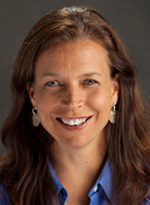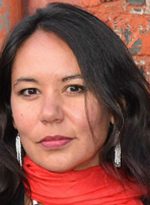Media & Resources
Tips by Native Aunties for Mental Health
Mental Health Tips by Native Aunties, Dr. Michelle Johnson-Jennings (Choctaw health psychologist) and Dr. Karina Walters (Choctaw clinical social worker)
Mental Health and Well-Being for American Indian/Native American/Alaska Native Communities
Our Native identities are braided with our ancestors’ visions of well-being carried in their stories, their teachings, and written into the land and the hearts of our Peoples. Although we are not defined by our experienced or historical traumas, we still carry the effect and stressors of traumas within our bodies (e.g., expressed as pain, diabetes or hypertension for example), our minds/emotions/spirits (e.g., expressed as sadness, anxiety, distress for example), and in our relationships (e.g., expressed as substance abuse, family or community violence).
Mental health is difficult to separate from our physical or spiritual health, as all are intertwined. Like the sea, we cannot easily separate one droplet from another. Our mind, spirit, and emotions influence our body, our families, our kin- past, present and future. Our relationships with others, human and more than human, affect our risks for diseases and overall health.
While colonialism sees us as victims and addresses our well-being through a victim lens. We are not victims. We are mothers, fathers, sisters, brothers, elders, care takers, resistors, storytellers, leaders… We are the outcome of thousands, upon thousands, of ancestral love. We are Indigenous. Our story of mental health surrounds love, power, and vision.
Love, because in this moment, we embody the love of thousands of ancestors. Their love, sacrifice, and perseverance has led to us being alive today. They made it through historically traumatic events not so that we could live unhealthful lives. But they loved us so much that they persisted so that we could have a life of health, beauty and well-being. We can take action for our health and well-being. We then reconnect to our ancestors’ love that they carried in their hearts and minds. We have the opportunity to carry that love forward in our lives now and into for future generations.
Power, because in this moment, we are our ancestors in the making and can carry forward love to the next seven generations and beyond. In this moment, we all are our great-great-great+ grandmothers’ granddaughters/grandsons. We can take action now to heal. Then we not only heal ourselves and our families but we can heal and provide love 7 generations. If we embrace love now, we also can heal unattended wounds from our ancestor’s generations. This is a place of power, not disempowerment.
Vision, because as they survived historically traumatic events, our ancestors persisted with a vision of love, life, and well-being for us. They loved us before we were ever born. They imagined a life of health and well-being for us. We can honor our ancestors (past, present and future) by re-connecting to this vision of love, life and well-being. We can do so through our actions today. We can carry forward that health by living a life of health, love and power. If we do this, we carry the vision forward for future generations to thrive.
We are defined by Native teachings for health and well-being, the protocols for healthful living that our ancestors lived, envisioned, and enacted by and for us, and that we in turn, envision for future generations.
Land, place and our kin relations tie to our health and well-being. We use our land to story our lives. Our mother earth heals us, as we influence her in return. We can transform our health by re-connecting to our teachings, rebalancing our relationships, and re-storying our live. Then we can be healthy ancestors to ourselves, our families and our communities- as well as past and future generations.
Auntie Q&A
How do I know if I’m stressed, down, or overloaded?
The aunties have worked with Native people who were out of balance. Some of their descriptions included the following:
- Feeling numb
- Wanting to escape from present
- Mind or body not being able to sit still
- Getting angry easily
- Feeling it’s “too much”
- Thoughts won’t turn off to sleep at night
- Sleeping more than usual
- Not sleeping enough
- Disturbing dreams or recurring nightmares
- Not wanting to be near friends or family
- Always thinking about worst case scenarios or excessively worrying about the future
- Not feeling hopeful or caring about the future.
- Feeling out of balance, just off
What can I do for myself for a love one who is feeling out of balance?
Remember that we all are out of balance from time to time. But if you have a hard time regaining balance, it’s important to seek help for yourself, your ancestors, and the future generations.
The aunties have worked with many people who were able to rebalance after did the following:
- Speak with one of your respected elders about how you and, or your loved one feels. Odds are they have been there before and could listen and offer wisdom. If you do not know anyone, contact your Nation’s health or social service department and ask for a referral. Or ask a Native listserv or group site about referrals.
- Speak with a healer about how to rebalance. There are many different types of healers and ways to heal. Contact someone whom you trust and offer culturally appropriate ways to heal.
- Return to the land, ceremonies, and, or ancestral stories for healing.
- Speak with a healthcare provider about getting some extra support in the form of therapy and, or medications.
What can I do to maintain balance?
The aunties have listened to elders who have shared their wisdom about maintaining balance. They recommend considering the following:
- Consider saying a prayer each morning.
- This could include laying tobacco, pollen, salt, etc. out upon mother earth for the power to follow your ancestral vision and maintain balance.
- You may also consider reflecting on love for self and others.
- Practice/re-learn Native teachings.
- Try to join online classes, forums, and, or schedule dates with speakers to practice words, songs, or stories. When we know our Native language and teachings, we have better well-being.
- If you smudge, consider doing so every morning and focus on letting go of stress and focus on love.
- Reconnect with others by the following:
- starting a walking/hiking/running group
- join an online chat group that shares your interests
- join a talking circle
- join/start an online or otherwise beading group
- go to a powwow, social dance if safe to do so
- join a drum group
- Donate meals to those in need
- Safely spending time with others who are alone
- Spend time with our more than human kin (i.e., plants, dogs, cats, birds, suns, trees, etc.)
- Go for a run, walk, re-connect with breath, and, or exercise in your own way each day.
- Return to mother earth, each day and every day. If even for 20 minute per day, connect your skin to mother earth.
- Have in person or virtual (i.e., zoom, Facebook messenger, google calls, etc.) dates with friends and others. Schedule a weekly chat with loved ones and friends. These dates are important to reconnect and restore our relationships with others.
Remember that Laughter is powerful medicine- The stereotype of being stoic arose after being beaten for laughing, speaking our language, expressing ourselves, and, or even sharing our emotions. This is not our cultural ways. Our ancestors have reconnected through laughter and love. This medicine can heal. Spending time with others and laughing is important for well-being.

Karina Walters, PhD (Choctaw Nation of Oklahoma)

Michelle Johnson-Jennings, PhD (Choctaw Nation of Oklahoma)




